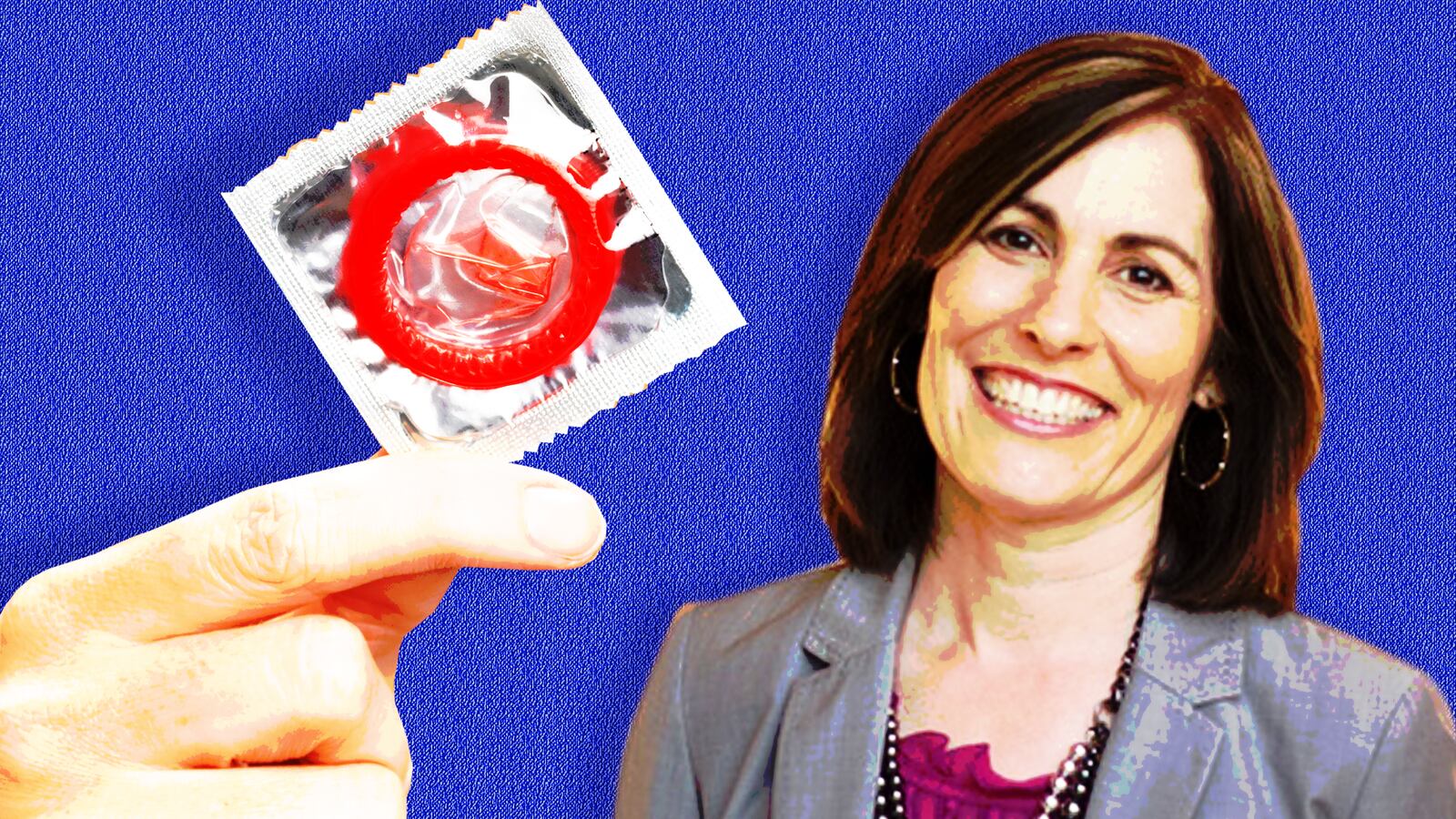Early this month, the Trump administration appointed Valerie Huber, a well-known advocate for abstinence-only sex education, to serve as chief of staff at the Office of the Assistant Secretary of Health at the Department of Health and Human Services. With Huber’s pick, and a proposed 2018 budget committing $277 million to abstinence-only education, the White House seemed to signal to its conservative base the scientifically dubious “Just Say No” brand of sex education was back, and now one of its staunchest believers would be helping to man the helm.
Huber’s boss hasn’t been appointed yet, but HHS’ acting assistant secretary for health, Don Wright, announced Huber’s hiring in an internal memo published by The Hill. In the email, Wright wrote that Huber’s “wealth of professional experience in the field of public policy will serve her well in this position.”
That experience is both limited, and includes internal scandal, The Daily Beast has learned.
Huber came to Washington by way of Ohio, having served as the abstinence education coordinator for her home state’s Department of Health from 2004 to 2007, before forming Ascend, an organization dedicated to abstinence education on a national level.
Huber became interested in public policy by way of being a mom, after her son came home reporting what he had learned in health class: Don’t have sex, but if you do, use a condom. To combat this shocking message, Huber founded a nonprofit organization, called REACH. “My vision was to make a difference in the life of one child—my son—but God had a much bigger vision,” she told an interviewer at CE National, an organization that describes their mission as helping churches be more effective on a national level.
In 2004, she left REACH to become the state abstinence coordinator at Ohio’s Department of Health where she oversaw the abstinence-only sex education programs for some 144,000 students.
During her time at Ohio’s DHS, Huber was criticized by AIDS-awareness groups in the state for holding conferences that excluded gays and lesbians with a “wait until marriage” message that refused to mention condoms, as well as using federal funding to purchase materials that contained “false, misleading, or distorted information” about contraception, abortion, and blurred the lines between religion and science—an assessment that Huber at the time called “an out of context and gross mischaracterization.”
Despite its uncertain effectiveness, Huber continued to oversee the abstinence program, and its some $23 million in state and federal funds. Then, in January 2006, she became the focus of an internal investigation and subsequent inquiry by the Ohio Ethics Commission, according to human resources documents retrieved by The Daily Beast. Internal auditors found that Huber had awarded a contract to a marketing company to develop a pro-abstinence media campaign for which she served as the statutory agent.
Internally, Huber was found guilty of “neglect of duty” and was ordered to serve a one-day working suspension. In a disciplinary letter, Ohio’s then-director of health, Dr. Nick Baird wrote that Huber’s actions “created an appearance of impropriety and a possible lack of confidence.”
Investigation documents recommended actions against Huber for violation of ethic laws be taken up by the Ohio Ethics Commission. Those inquiry records are not public.
Huber officially resigned from Ohio’s Department of Health in January of 2007, and quickly formed the National Abstinence Educators Association—a lobbying arm of the abstinence education industry, later known as Ascend, and rebranded abstinence education as “sexual risk avoidance.”
Ohio’s teen pregnancy rate remained steady during her state tenure—from 33.2 per 1,000 women ages 10-19 in 2004 to 34.9 per 1,000 in 2007. A national study ordered by Congress released shortly after Huber’s Ohio departure found students who were exposed to abstinence programs like Huber’s were just as likely to have sex as those who were not. More recent studies have found the same, with some concluding that abstinence education is actually positively correlated with teenage pregnancy and birth rates.
In 2012, when New York City schools began handing out the morning after pill to students in an aggressive push against teen pregnancy Huber called the effort “a terrible case once again of bigotry of low expectations.”
As president and CEO of Ascend, Huber told the AP in 2017 that sexual education programs which include information about contraceptives push teens toward sex, teaching in effect, “there’s really no red light as long as you do it right.”
“We don’t like the term ‘comprehensive sex education’ because it (projects) that it provides an even-handed approach that gives young people all the information to make healthy choices, when it fact it normalizes teen sex, and puts the emphasis on reducing the risk, rather than eliminating it,” Huber said. “You can’t blend the two (approaches) when you have underlying differences in foundation and the measure for success.”
Huber isn’t the first controversial figure to be posted at the Department of Health and Human Services. In April, Trump appointed Dr. Charmaine Yoest, an anti-abortion activist who acted as a surrogate during his campaign, as the assistant secretary of public affairs, a position that doesn’t require Senate confirmation. Yoest, a former president of Americans United for Life, an organization largely responsible for the state legislation that has restricted access to abortion in recent years, also kept a blog coauthored by her husband, titled “Reasoned Audacity,” where they espoused anti-LGBT views, including that transgender people were “crazy,” and referred to sexual reassignment surgery as “a joke.” Yoest scrubbed her blog of its anti-LGBT posts immediately following her appointment.
Research and credentials aside, Huber’s appointment has her poised to steer the national health agenda back toward abstinence education, and in her new position will affect oversight for 12 public health offices—including Women’s Health, Minority Health, HIV/AIDS and Infectious Disease Policy, and Adolescent Health.
The Office of the Assistant Secretary for Health confirmed Huber’s appointment, but declined to comment on her record. A representative said Huber was on a family vacation.





